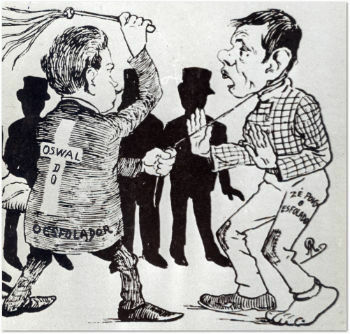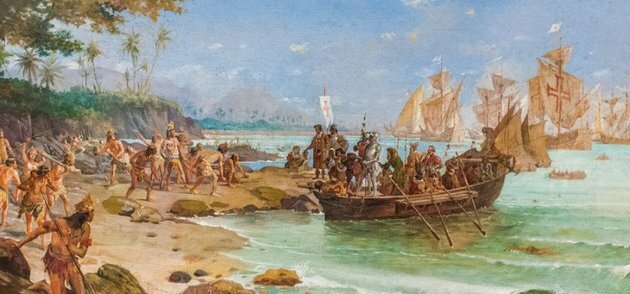Vargas' suicide meant that Café Filho's brief presence in the presidency was marked by great instability. To ease tensions at that time, the new president went out to the media promising to take on the commitments made by his predecessor. However, the political pressure exerted by the opposition sectors led Café Filho to allow the entry of udenista politicians into his new ministerial cabinet.
The great economic problems of the time (inflation and the trade balance deficit) were tackled by limiting credit, reduction of public expenditure, the creation of a single electricity tax and the automatic withholding of income tax on salary. Furthermore, in order to seek support from parliamentarians in the approval of such measures, Café Filho declared that his government was provisional and had no major political pretensions.
The proof of this transitory nature was seen when the president denied the suggestion to postpone the elections by politicians who feared a massive PTB victory due to the commotion caused by the death of Getulio Vargas. The conservatives' fears ended up not being reflected in the ballot boxes, where the Getulista parties had a small advance. Soon after, the disputes would be revived with the presidential elections.
As early as 1954, Juscelino Kubitschek launched his candidacy for the PSD. Shortly thereafter, the military offered the president a document suggesting that elections be organized around a single candidate approved by the military forces. The proposal – supposedly favorable to udenistas – was opposed by the PTB, which formed an alliance with JK by placing João Goulart as vice-president of the ticket. As a result, the mobilization suggested by the military did not proceed.
Thus, the UDN faced serious difficulties in choosing a name that would face the PTB/PSD ticket. The opposition's final choice ended up being closed on the names of ex-tenetist Juarez Távora and Milton Campos. Running outside, there was still the candidacy of Ademar de Barros, who enjoyed his prestige among the electorate in São Paulo. In fact, the disputes in those elections were polarized between Juscelino and Juarez Távora.
During the electoral campaign period, JK sought the support of the population with a speech focused on developmentalism and the immediate modernization of Brazilian industry. Among udenistas there was a great concern in defending the moralization of the national political scenario and, thanks to Carlos Lacerda's incendiary tone, suspicions were raised about Juscelino's real intentions. Kubitschek. Even so, it was visible that the JK/Jango ticket had better conditions to win the election.
With that, some udenistas considered the possibility of supporting a coup d'état conducted by the Armed Forces. At the end of the election, Juscelino Kubitschek won the elections with a small difference of 6% in relation to Juarez Távora. To try to disarticulate JK's victory, Carlos Lacerda even "planted" a letter that would prove the Jango's intention to establish a union regime by offering arms to the working class.
In November 1955, President Café Filho had to step down from office to treat heart problems. In his place, Carlos Luz, president of the Chamber, assumed the presidential post. Among his first actions, Carlos appointed General Álvaro Fiúza de Castro to assume the Ministry of War in place of Henrique Lott. This measure increased the possibility of a military coup, as the new minister was visibly opposed to JK's coming to the presidency.
However, before handing over his post, General Lott was persuaded by other loyalist military personnel to conduct a coup against President Carlos Luz. After the announcement of the coup, Café Filho suddenly recovered and expressed interest in resuming the presidential post. However, the sudden cure aroused the distrust of Lott, who preferred to hand over the mandate to Nereu Ramos, president of the Senate. Thus, the transmission of power to Juscelino and Jango was guaranteed.
Do not stop now... There's more after the advertising ;)
By Rainer Sousa
Master in History
Would you like to reference this text in a school or academic work? Look:
SOUSA, Rainer Gonçalves. "Coffee Son"; Brazil School. Available in: https://brasilescola.uol.com.br/historiab/cafe-filho.htm. Accessed on June 28, 2021.


